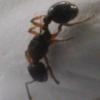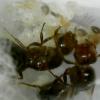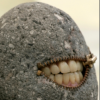My colony seems to have killed one of their own. They are now cleaning or eating the remains, I'm not sure which. I got a nice tripod today which I wanted to try out so I went into the ant room and started filming. After a minute or so I realized two workers were cleaning another. I assumed it was a pupa that was getting ready to eclose, but upon further examination I realized it was just the head of a young (lightly colored) worker. ![]()
I kept filming and I've been uploading the video for the last 3 hours, which is ridiculous considering I have a 150Mb down 50Mb up connection.
YOU HEAR THAT YOUTUBE?! THAT'S RIGHT, I'M CALLIN YOU OUT!!
Anyways, I finally got the video uploaded. At the beginning you can see the two playing with the head directly in the middle. At around the 2:15 mark you can see another worker (up and left slightly from the two with the head) carrying what I assume to be the gaster.
Any idea why they would have killed one of their own? You can see some fibrous material coming out of the base of the head, which tells me the workers head was most likely pulled off.


















